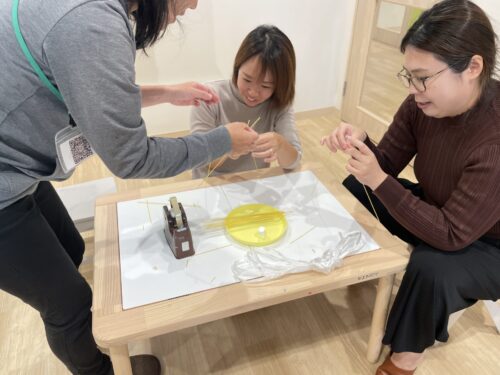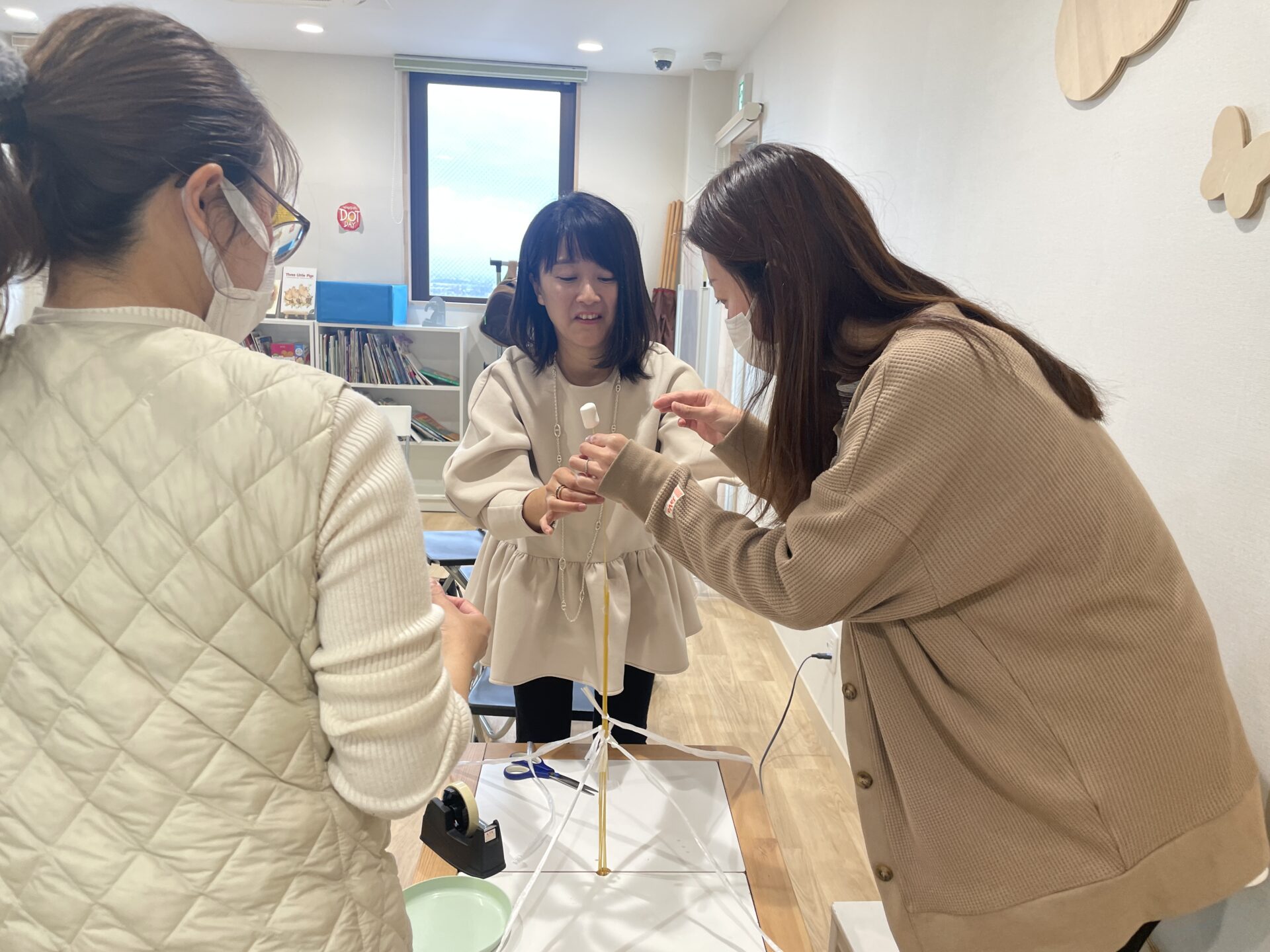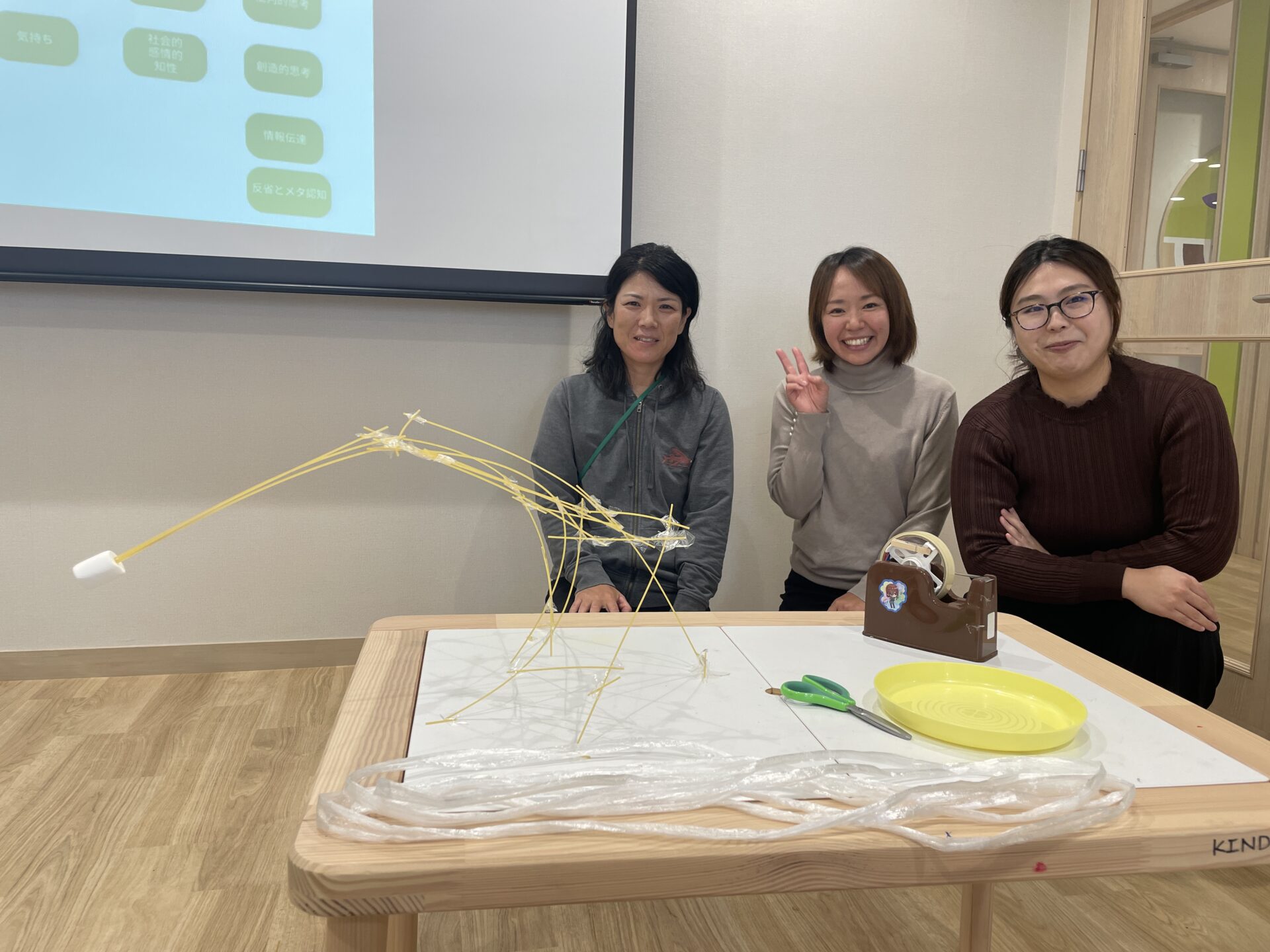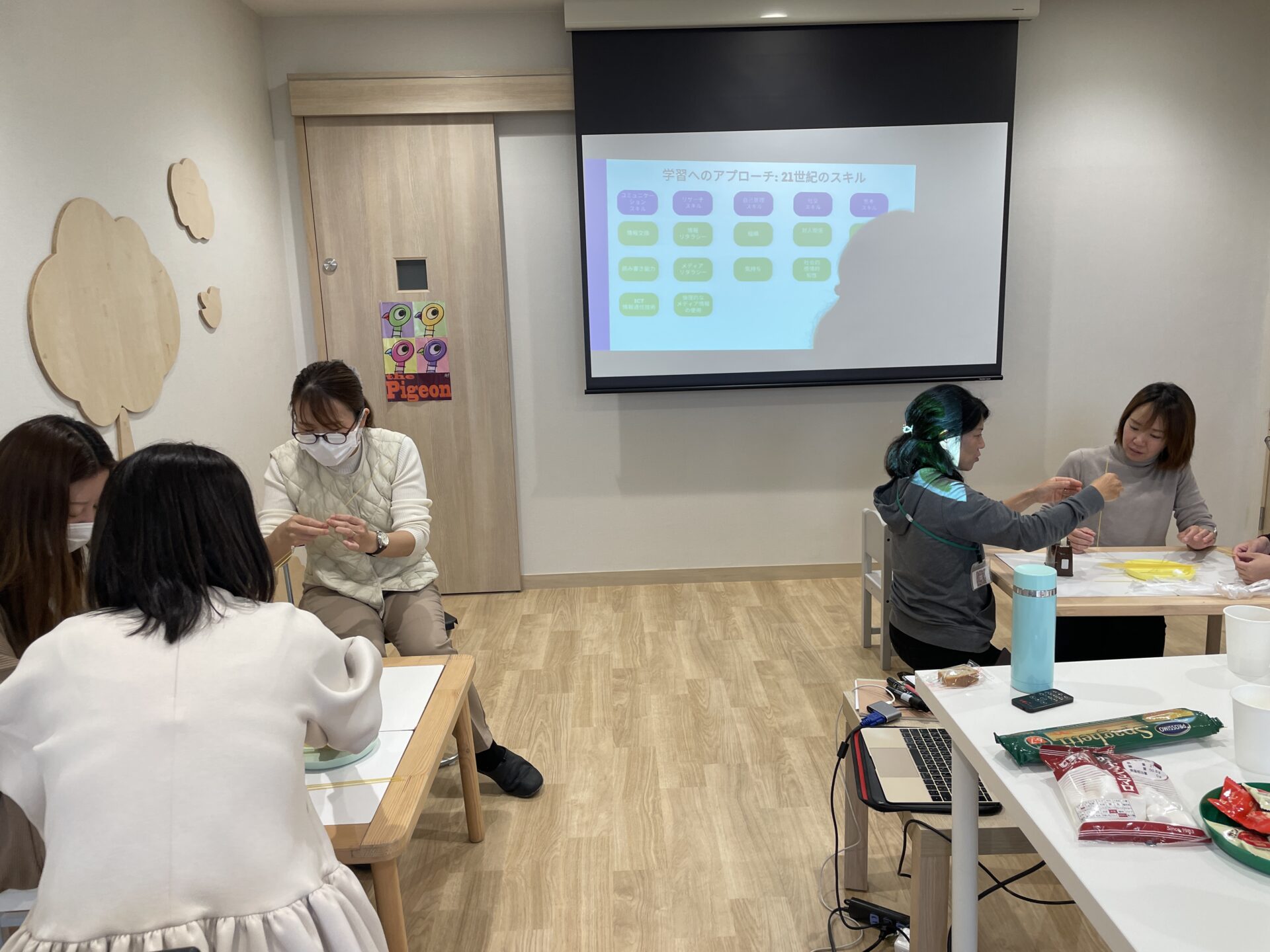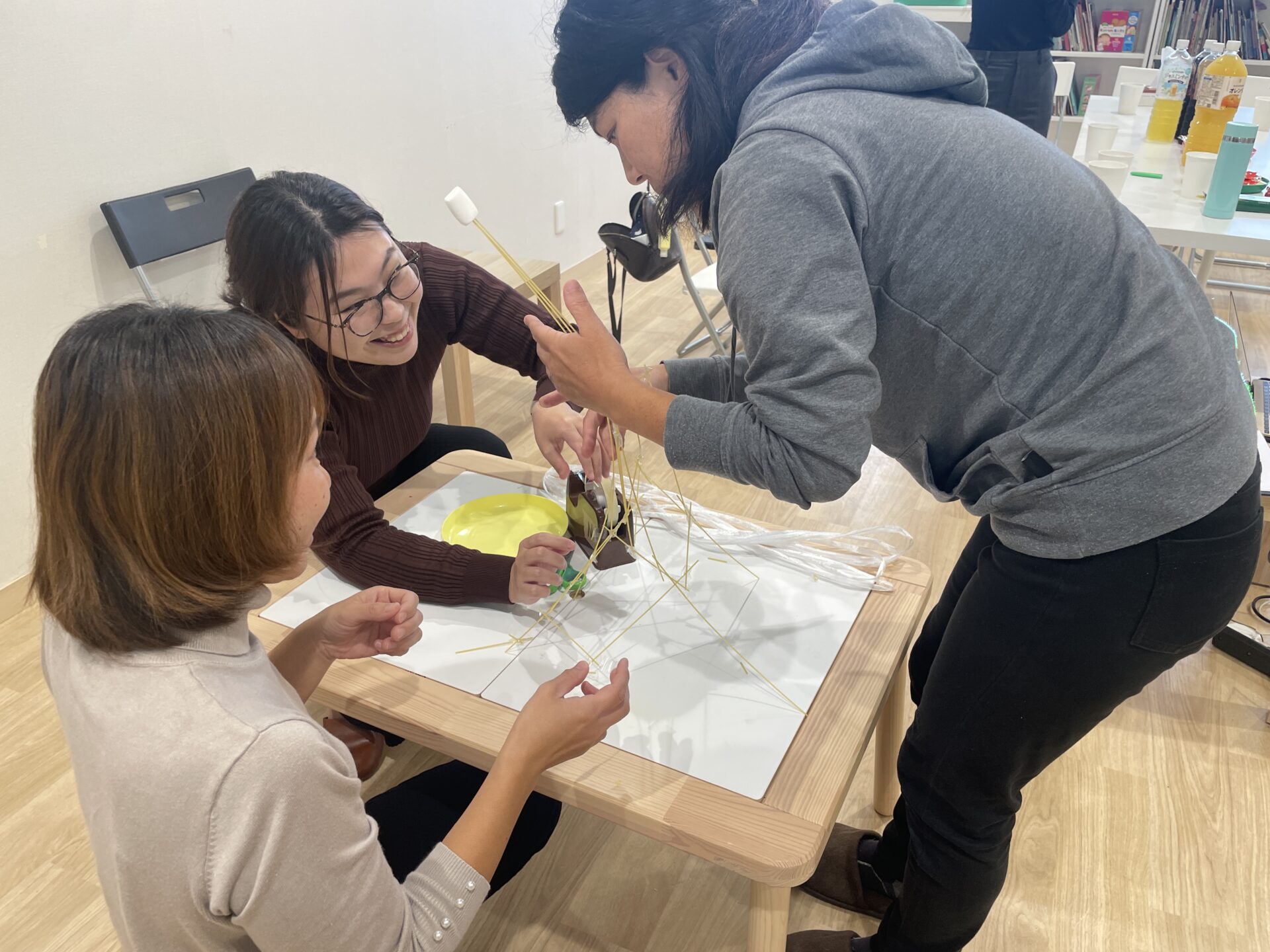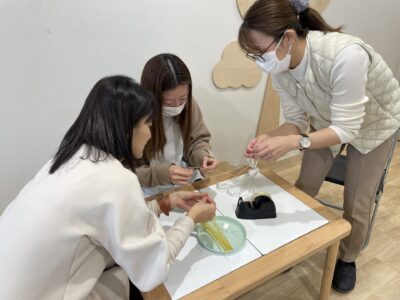2023.11.14
Coffee Meeting Toyonaka Campus: The Marshmallows Challenge!
We had an exciting workshop during the coffee meeting at Toyonaka campus. You can see that all moms worked so hard to figure out how they can build the tallest freestanding structure to support a marshmallow. The materials you can use for this challenge are 20 spaghettis,tape,scissors and strings and they had just 10 minutes to complete this task.
This famous challenge was created by an American designer, Mr. Peter Skillman. After he conducted more than 70 challenges of all kinds of groups, he gathered an interesting fact about, “who actually consistently performs well”. The result was, architects and engineers were the best, of course! But surprisingly the worst group was recent business school graduates. And the second group who were successful was recent Kindergarten graduates! Why did it happen? Business school graduates were trained to find a single right plan.So they talked for a long time and they even sketched a model before they touched any materials. Then when they finally made a structure and put a marshmallow in the end, the tower couldn’t hold it and the entire building collapsed. But they ran out of time to make another new structure.
On the other hand, recent kindergarten graduates start from a marshmallow. They changed the model constantly but marshmallow was always on top. Children exchange instant feedback constantly, what works and what doesn’t work. So they produce not only the tallest structure but the most interesting structure of all. This challenge has been used for team building and enhancing communication skills.
And the result of our marshmallow challenge was… those beautiful towers! Well done all moms!! Two teams came up with totally different ideas and both are unique and very creative. But the whole point of this challenge is not about winning. Ms. Darlin wanted everyone to think about what skills were used to complete this challenge. What was the most utilized skill and the least utilized skill? Both teams thought they used “thinking skills” the most and “research skills” the least.
As we become an IB school, we aim for children to have the five skills- Communication skills, Research skills, Self- management skills, Social skills, and Thinking skills. So Ms. Darlin urged parents to support children at home by noticing the skills that their child is using. Once skills are recognized, parents are encouraged to use the name of skill so children can easily understand what they are doing. Parents are also urged to please give their children feedback and to praise their efforts more than the result.
We are currently granted candidacy as an IB PYP school. And in our past coffee meeting during the summer term, we have focused on looking at the learner as the center of the IB Primary Years Program Framework and how we can support children through play based learning.
In this most recent coffee meeting, we have moved our discussion from the center to the outer circle of the PYP framework, focusing on Approaches to Learning. In our journey to becoming PYP parents, we have explored how these skills are considered essential for success in the 21st century, as they go beyond traditional subject-specific knowledge and focus on equipping students with the tools they need to be lifelong learners and become adaptable individuals.
Teachers and students are mindfully utilizing their PYP approaches to learning in their daily tasks, addressing not only academic knowledge but also skills and attitudes that contribute to their personal growth and success in an ever-changing world. We hope that through this workshop, parents can join us in supporting these important skills at home.
For more information about International Baccalaureate Primary Year Program, you may visit their website through the link below.

